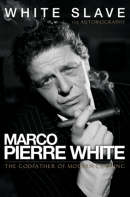Book review
I found this book in Donners' bookshop in Rotterdam, where they had a very fine selection of books in English. Of course I couldn't resist it. So I used some of my free time on the barge to read it, and very good it was, too.
Tamerlane, or Timur the Lame, was a Tatar from what is now Uzbekistan. He had ambition, drive, ruthlessness and was a brilliant general, a master of outmanoeuvring his opponents. The book tells his story: part history, part biography, part travelogue. Long forgotten or suppressed by the Soviets in his own country, Timur is being reclaimed by modern Uzbeks: newly-married couples pose in front of his statue in Samarkand, and even the president likes to state that his vapid slogans are things that Timur would have said. Calling him Tamerlane is something of an insult there, apparently.
Most people may have heard of the mediaeval "conqueror of the world" through Christopher Marlowe's play, Tamburlaine the Great, which tells a blood-thirstily exaggerated tale of his exploits. Though Marozzi's book seems to indicate that Marlowe probably didn't actually exaggerate that much! It's interesting to think that Timur conquered vast swathes of territory in Central Asia, as far east as Turkey and Egypt, as far south as Delhi, and was planning to invade China before his long life was ended: his interest in Europe was non-existent, for the continent was poor, and wealth and riches seemed to be one of his goals. This seems not to have been necessarily for personal gain, Marozzi explains, merely that he understood very well that the chances of getting good service from his soldiers were much higher if he offered them many opportunities for plunder. City after city was sacked (Georgia was particularly unlucky in this respect, being invaded several times) during his many campaigns and his own city of Samarkand consequently enriched.
Marozzi points out that although Timur styled himself "Sword of Islam", he actually was responsible for the deaths of more Muslims than he was of "infidels". Marozzi paints a portrait of a complete pragmatist, who used Islam when it was convenient, and ignored its tenets when it was not. He lived a long life, seeing his eldest (and favourite) son, and that son's son die before him: his empire fell apart after his death, divided amongst his sons and grandsons.
This is a fascinating book, shedding an illuminating light on a historical figure usually ignored in European histories. It's tempting to wonder what Europe would have been like had he decided it was worth his time and effort to invade.

Another book, but not worth your time, judging by the brief extract I perused in last week's Telegraph, is Marco Pierre White's White Slave. The book's been ghost-written, but not very well, it seems: the extract was full of cliches, and tedious details of his many sexual conquests. White is undoubtedly a very good chef, but his life story - or at least, in the way it's told here - isn't interesting. It certainly won't be on my "to-read" list.
Update:
There is a superb parody of this book by Craig Brown in the current issue of Private Eye. I see no reason to change my mind!
Labels: reviews

0 Comments:
Post a Comment
<< Home